English identity is complex. Our history books are full of stories of the ruling classes: Kings, Queens, and Empire. But what about everyone else? Where are the stories of ordinary men and women? Shakespeare touches on this in Henry VI in the poignant scene following the Battle of Towton - the personal tragedies of a father who has killed his son and a son who has killed his father give us a chance to reflect on the absurdity of war. Towton was the bloodiest battle on English soil - 50,000 soldiers died, and all because two families were fighting for control of the throne.
As a musician with a foot firmly planted in the traditional folk world, stories and music go hand in hand. Don’t get me wrong, the history of the War of the Roses and the web of deceit and betrayal between the Lancasters and Yorks is fascinating, but folk music allows us to glimpse into the life and thoughts of the common man and women. That scene in Henry VI was the catalyst that led me to select the main theme for Henry VI, a broadside ballad called Law Lies a-Bleeding popularised by English folk musician Martin Carthy in his arrangement Dominion of the Sword. The anti-war ballad was written during the English Civil War, about 50 years after Shakespeare’s first performance of Henry VI!
“Conquers the crown too, grave and the gown too
Set you up a province, but it’ll pull it down too
No gospel can guide it, no law decide it
In church or state, till the sword sanctified it”
I'm also very drawn to the idea that places hold traces of past events and this is reflected in a lot of my music so I was excited to discover that I've been walking across the site of St Paul's Cross (outside St Paul's Cathedral) each day on my way to The Globe. This is where the sermon towards the end of Act III of Richard III took place, when Richard was declared rightful heir to the crown due to the supposed illegitimacy of Edward IV’s sons.
The two plays, Henry VI and Richard III, run chronologically, and it was important this was reflected in the music. The Dominion theme and folk song Adieu to Old England appear in various guises throughout both plays. Working with the wonderful Globe Ensemble throughout the rehearsal process allowed me to try out music and songs with the actors and they embraced learning about and singing the folk songs I brought to them.
The overall soundworld of Henry VI combines folk music with cinematic underscoring, creating a doom-laden, unsettling world as the play becomes more bloody and horrific. I particularly enjoyed creating these moods and atmospheres. I normally use electronics in my music so the challenge in the amplification-free zone of the Sam Wanamaker Playhouse meant that I had to think of ways to create similar textures with acoustic instruments. An acoustic guitar set up on its back with a pair of EBow plus a musical saw create a bed of droney wooziness that runs under many of the dreamscapes & ghost scenes. Extended techniques on cello, violin, and prepared piano make it discordant and unsettling – I was going for that horror movie soundtrack vibe!
As we approach the end of Henry VI, we start to get glimpses of what to expect in Richard III. Without giving the game away to those of you who haven’t seen the plays yet, the protagonist leaves his mark on everything around him, including the music, which takes a U-turn in Richard III as we enter a surreal Lynch/Tarantino world where brutal violence is juxtaposed with upbeat music. As Richard loses his grasp on power, the folk music begins to return.
Being part of a creative team means that you are just one cog in the wheel: direction, design, costume all feeds into the music and vice-versa, and takes you in directions you really weren’t expecting at the start. To write music for theatre, you need to be able to turn your hand to almost anything musically and as you get closer to the previews, you find yourself writing bits on the spot. Keeping up with the pace of changes once rehearsals get into the performance space is a real challenge, but one that that has been incredibly rewarding. Playing live in the band each night has been an added bonus. Every performance is different, and finding subtle variations and tweaks to how we’re playing the music has been a real joy. You can’t help but be inspired by the evocative surroundings of the candle-lit Playhouse - I’ll be sad when the run comes to an end!
This blog was written for Shakespeare's Globe website blog
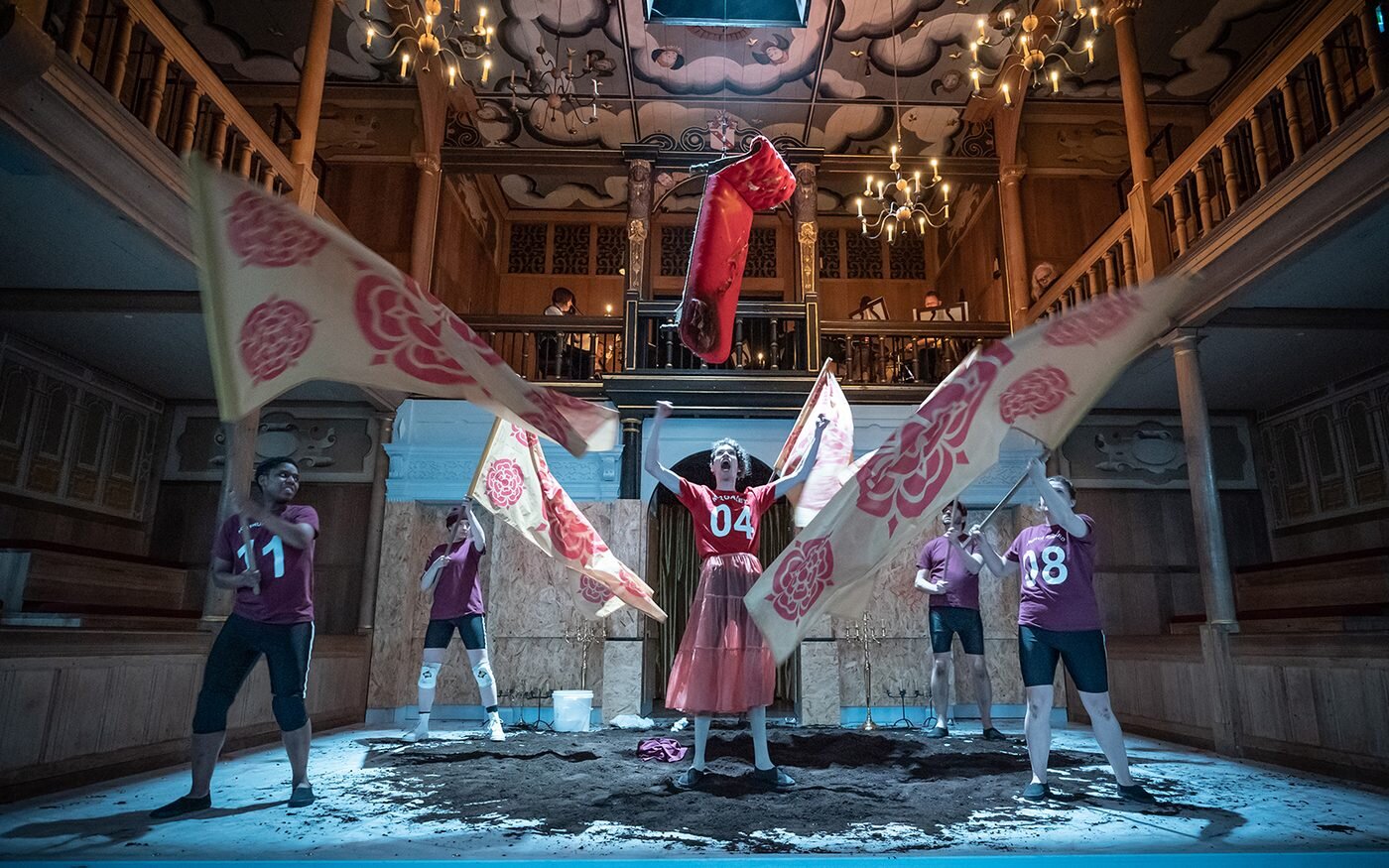
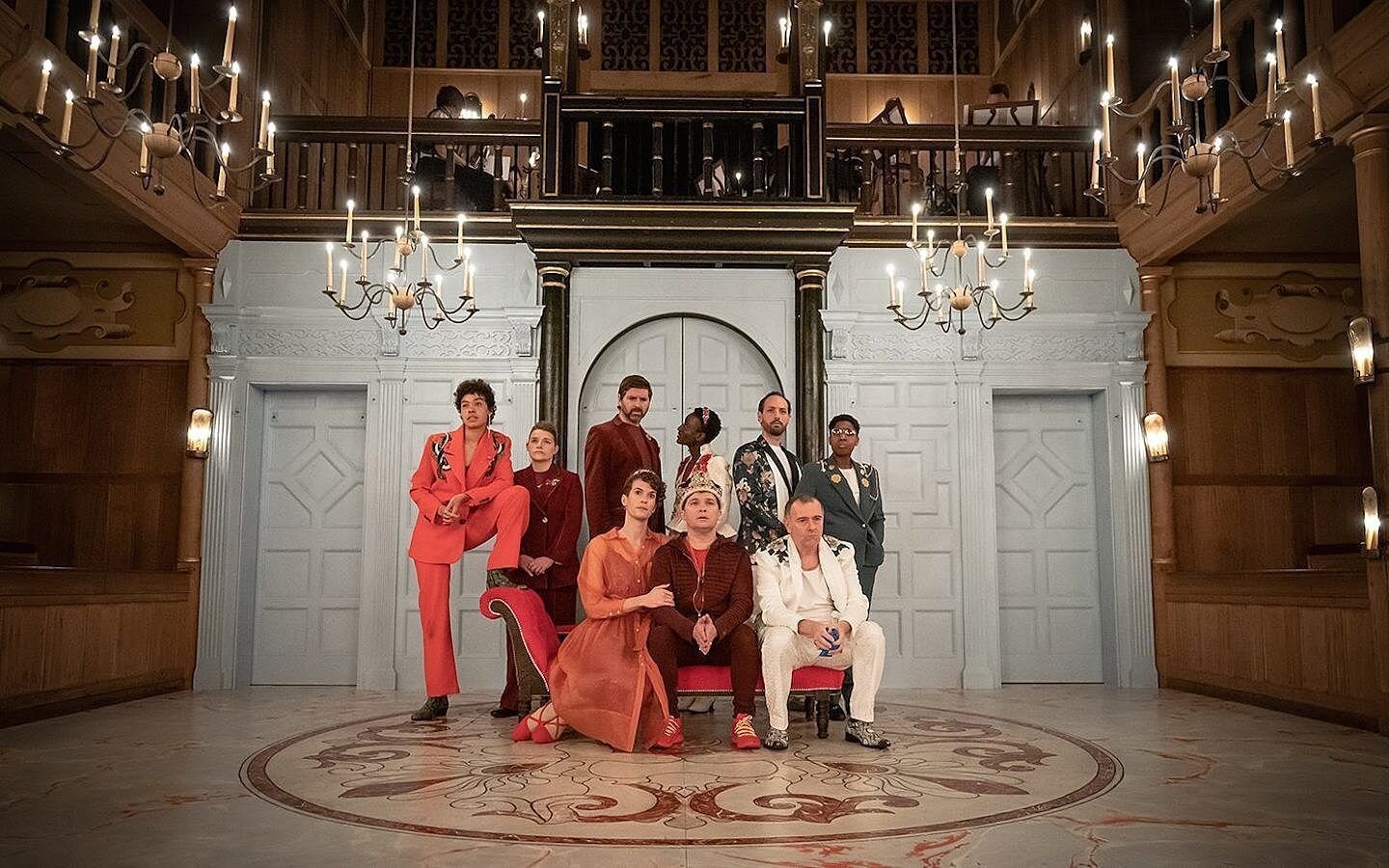
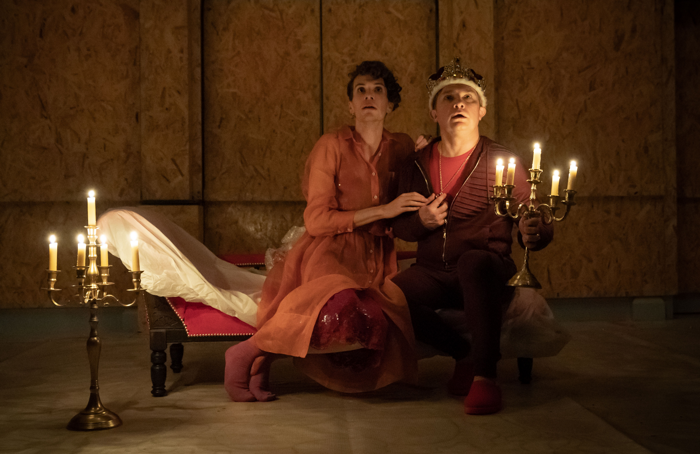

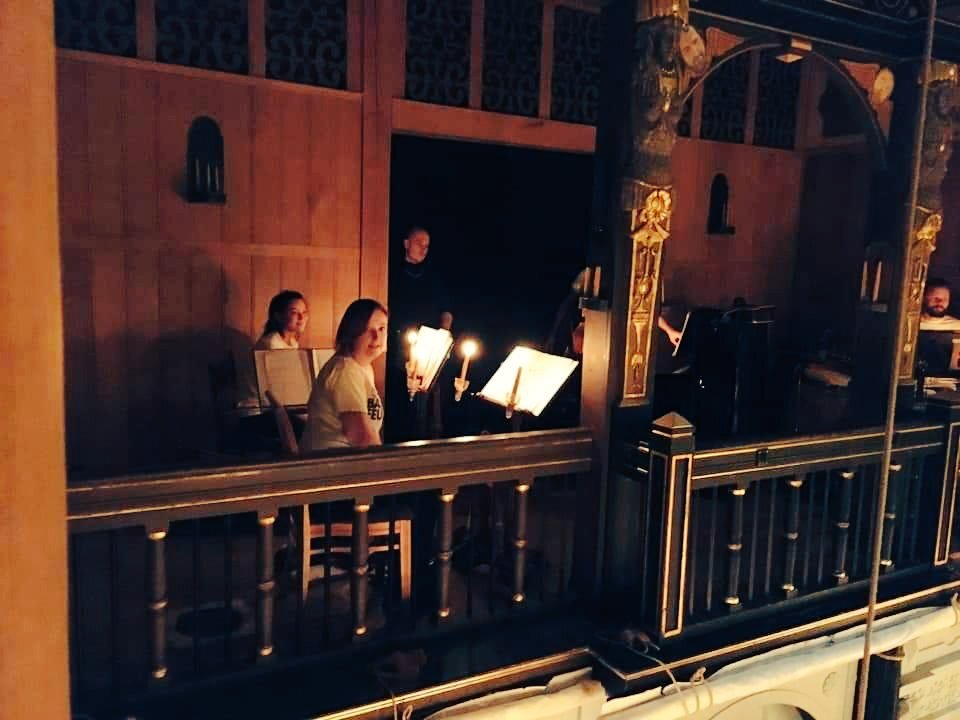
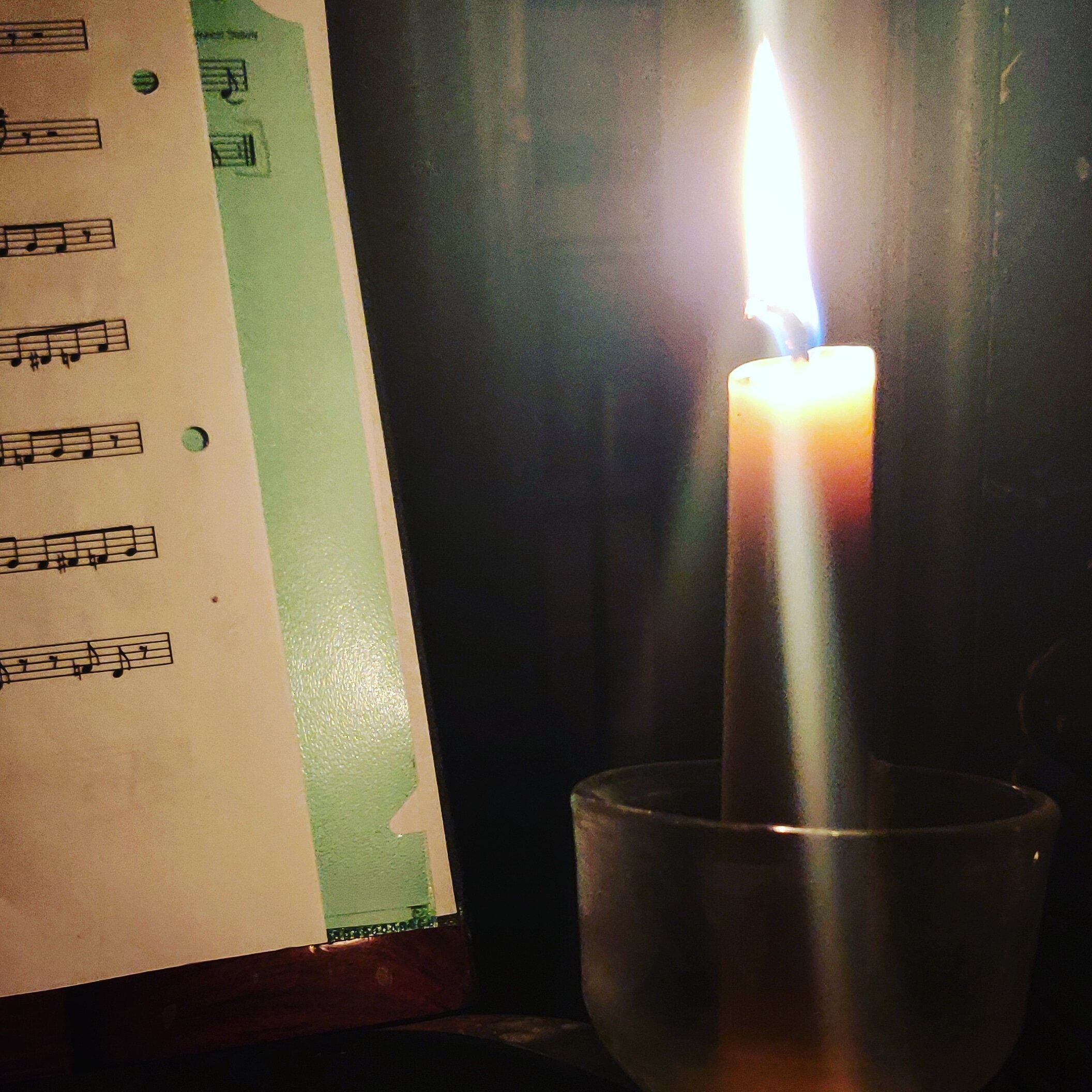
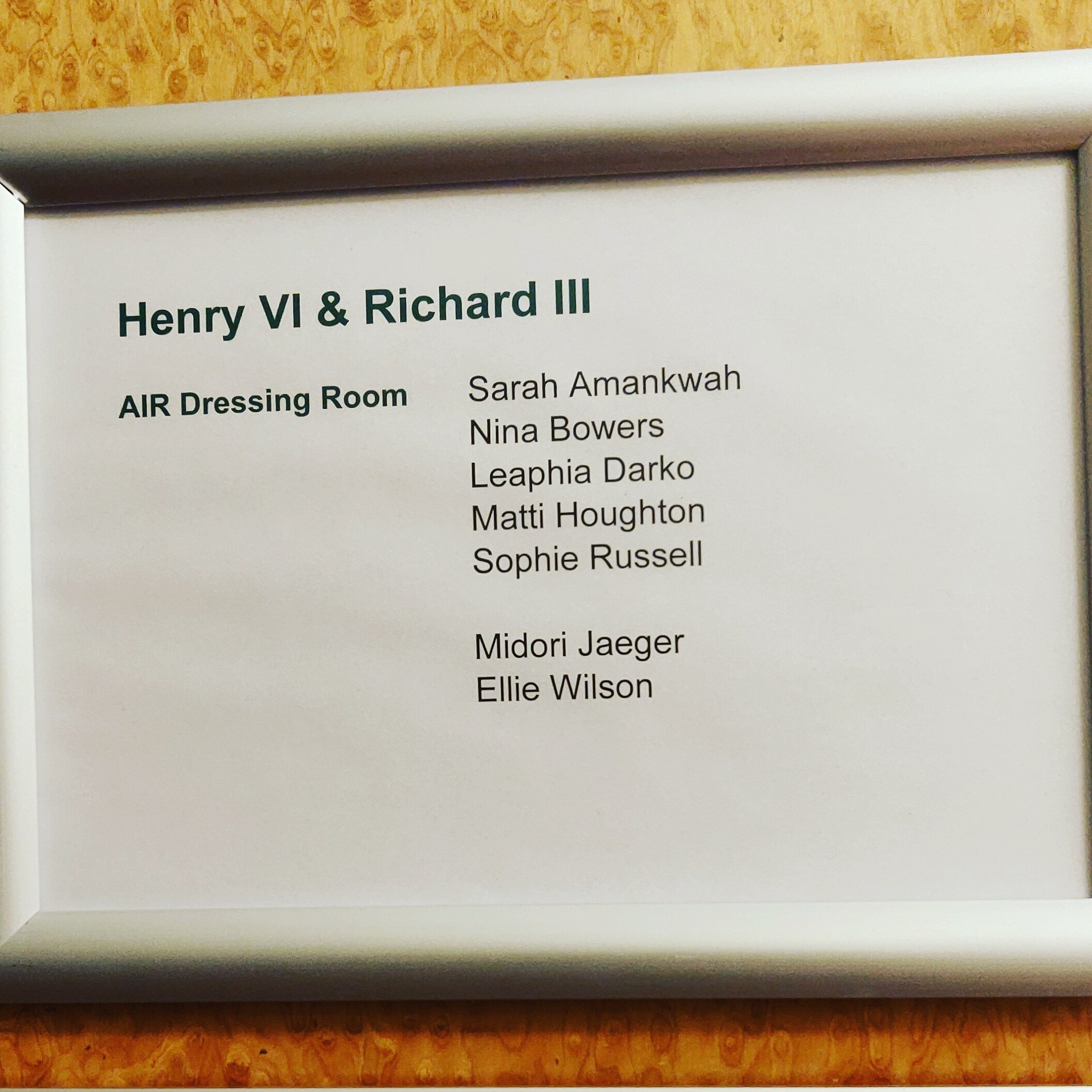
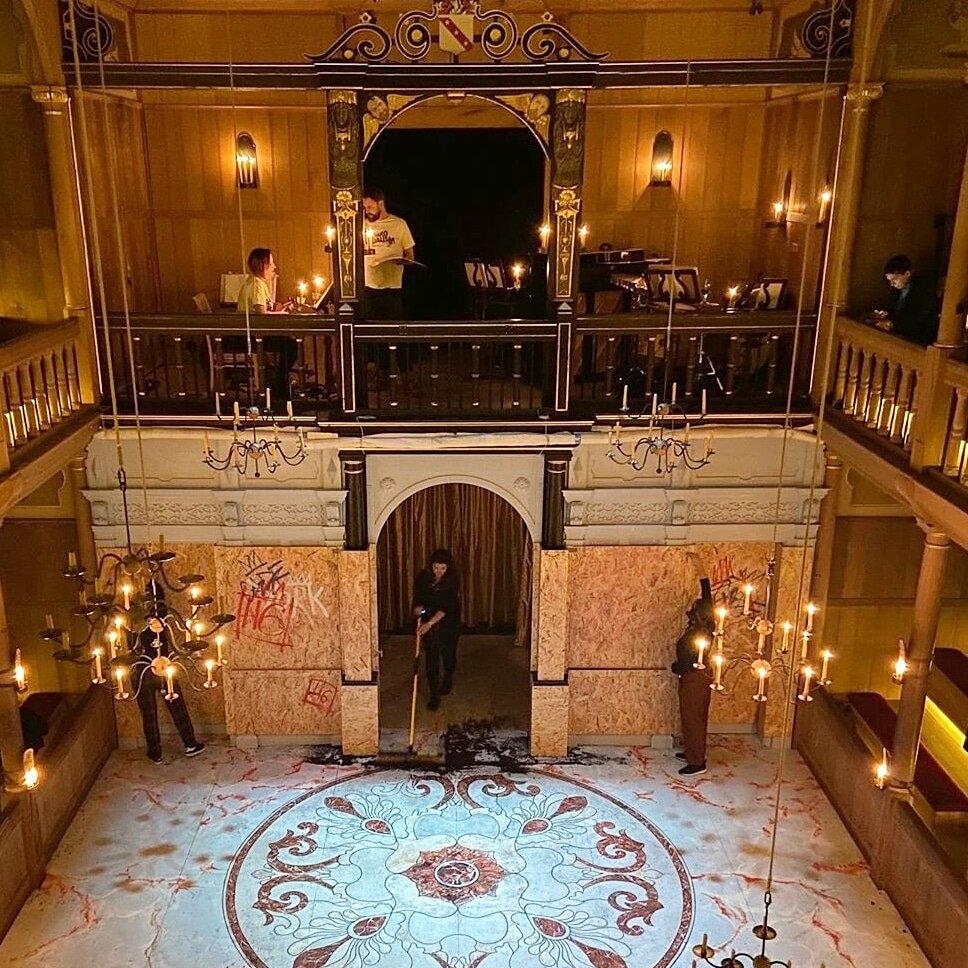


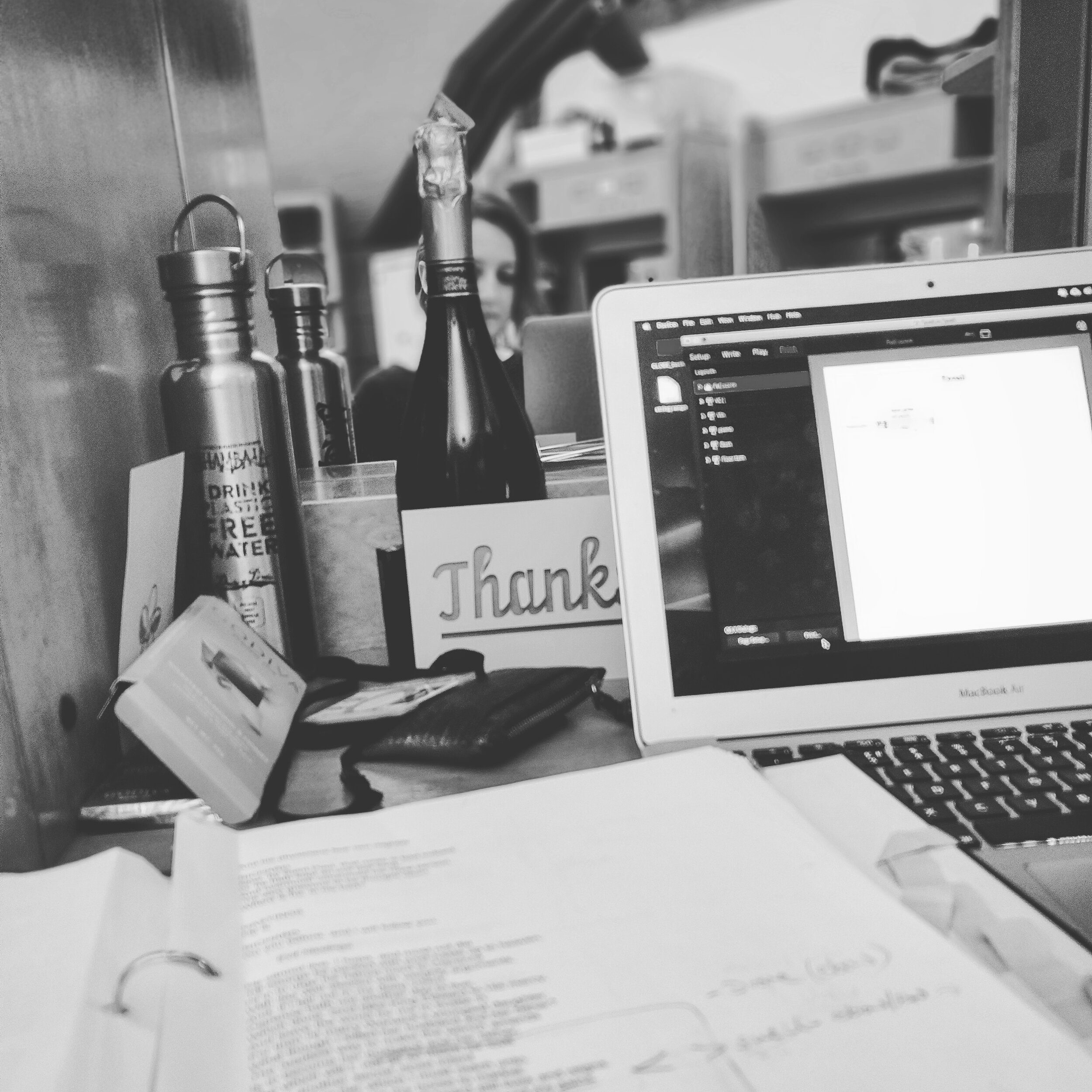
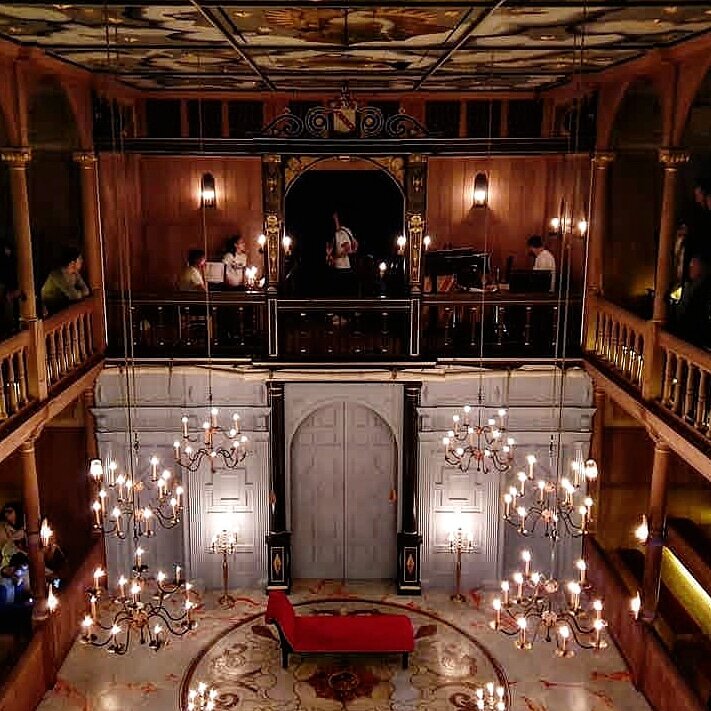
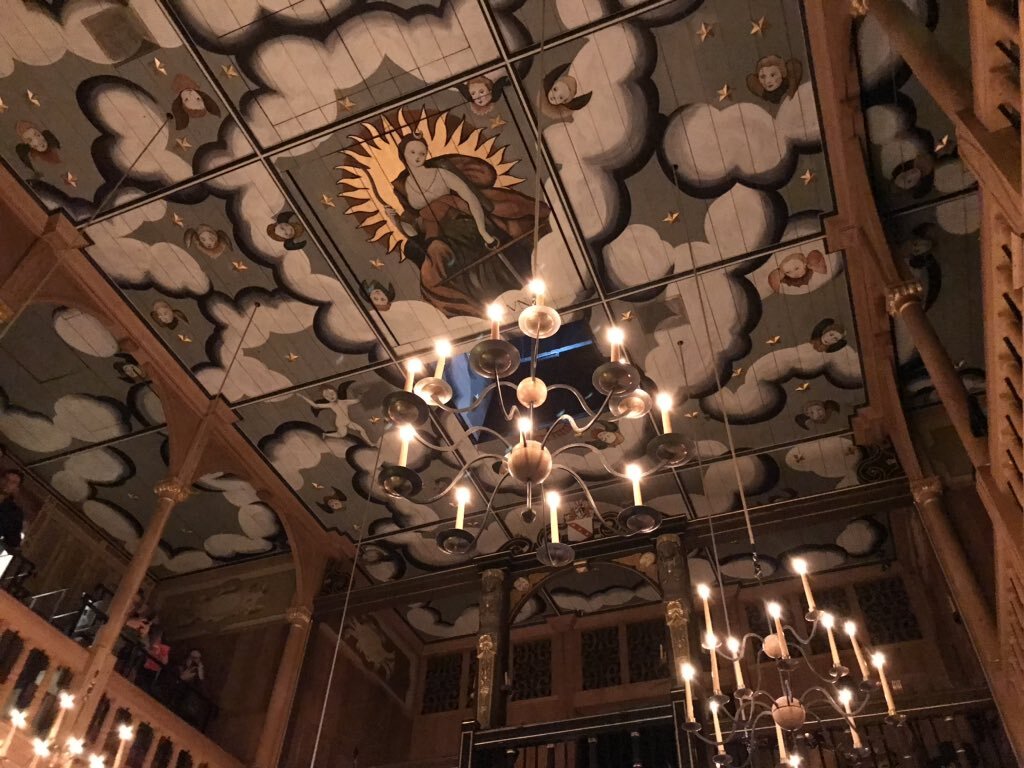
“Ellie Wilson composes the score, with haunting solo vocals and an impressive set of themes that make it this season’s most memorable.” – Fringe Review
“The music lends an uncanny atmosphere throughout, especially from the saw and violin (both played by Ellie Wilson)” – Broadway World
“The brilliant band melts seamlessly into the drama.”- Guardian★★★
“Music feels tonally akin to a Scorsese film – extreme violence enacted to a soundtrack and choreography that belie such evident rage … the music is strong and Ellie Wilson's use of the saw lends a great deal of tension to the play's darker moments.” – Whats On Stage ★★★
‘Each death is brought about by such wanton savagery and set so perversely to upbeat music that it is difficult to know whether to laugh or cry .. Moments of gravity are supported by a cold filmic undertone of music that gives the scene a chilling feel’. - DrownedStage
“The production’s use of music was witty and oftentimes hilarious” - Stamped on the Atmosphere
“The juxtaposition of the song ‘For the Good Times’ with the brutality being performed on stage has echoes of the postmodern jukebox soundtracks of Quentin Tarantino” - ‘Action is eloquence’: (Re)thinking Shakespeare
“Breezy songs soundtracking grisly killing; we feel the thrill of all this amoral bravado, but see its awful impact too. These liberty-taking, lacerating exercises in black comedy put Shakespeare’s history plays into the present tense.” The Times ★★★★
